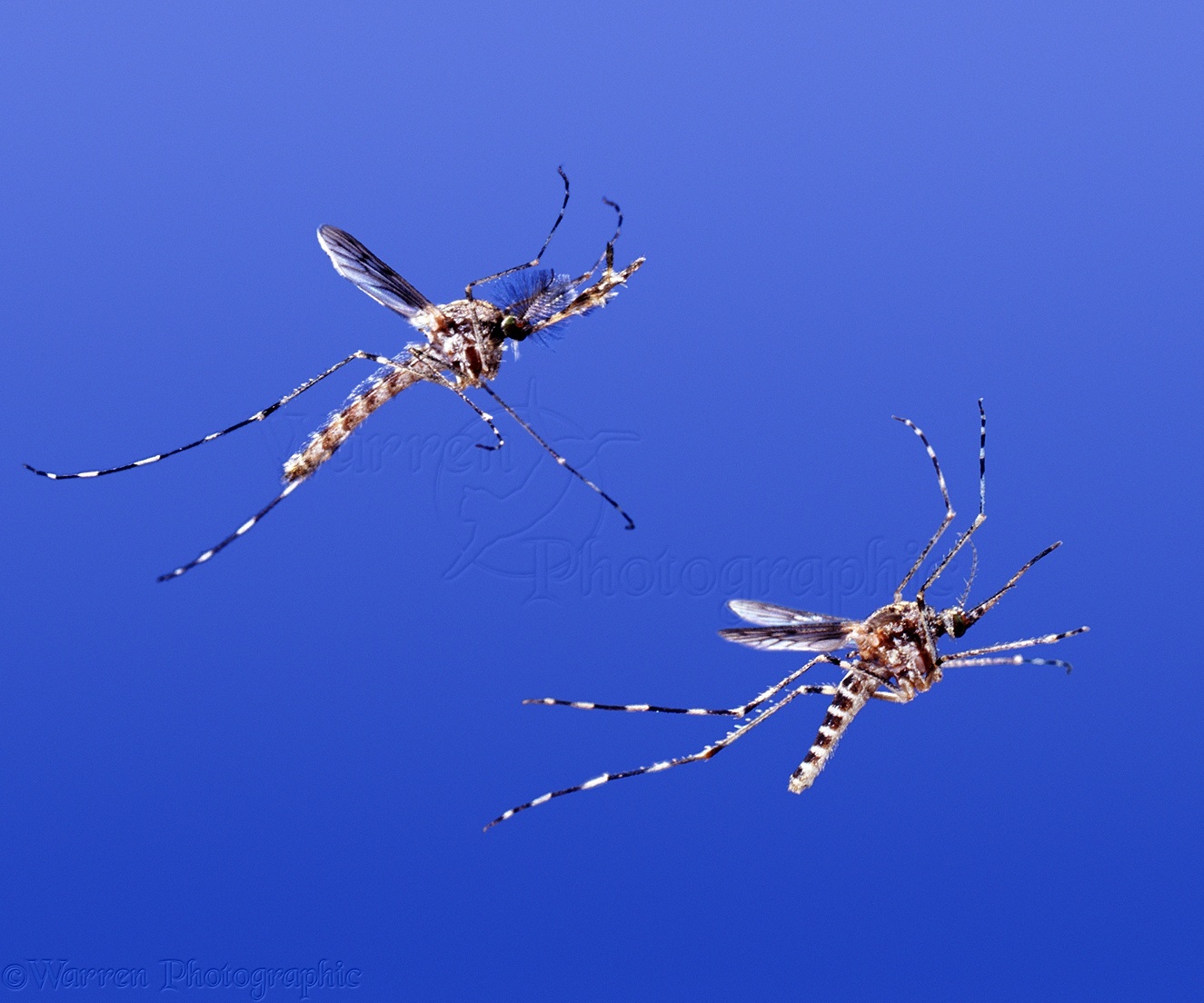Scientists at Uganda Virus Research Institute UVRI have started breeding mosquitoes with the aim of modifying their genetic materials and releasing them to the environment to curb malaria. Trials which took place in.
 Mutant Fungus Uses Spider And Scorpion Venom To Kill Malaria Mosquitos Cosmos Magazine Fungi Insects Mosquito
Mutant Fungus Uses Spider And Scorpion Venom To Kill Malaria Mosquitos Cosmos Magazine Fungi Insects Mosquito
An Oxford-based biotech firm is modifying the males of the species to be sterile effectively making the killers kill.

Genetically engineered mosquitoes malaria. Its the better mosquito qualification that has been eluding science. A few months after the technique was discovered in 2014 James engineered two mosquitoes to carry a gene drive that was tied to a gene for red fluorescent color that would target the mosquitoes. The results suggest that genetically modified mosquitoes can spread resistance to the malaria-causing parasite by thriving and mating with wild mosquitoes.
According to the WHO statement computer simulation modelling has shown that GMMs could be a valuable new tool in efforts to eliminate malaria and to control diseases carried by Aedes mosquitoes. Watch out malaria scientists are coming for you with genetically engineered mosquitoes. A team of researchers has altered the DNA in mosquitoes so they can fight and kill the parasites that.
Genetically engineered mosquitoes could be vital weapon against malaria. Sinclair StammersScience Photo Library The Anopheles stephensi mosquito can spread the malaria parasite to humans. The bacterium Pantoea agglomerans was modified to secrete proteins toxic to the malaria parasite but the toxins do not harm the.
From yeast to salmon gene-editing technology has made tremendous leaps in the last few years. Now two unrelated groups of researchers say they have developed new ways to fight the spread of. Science Photo Library A fungus – genetically enhanced to produce spider toxin – can rapidly kill huge numbers of the mosquitoes that spread malaria a study suggests.
The project alters the eggs of Anopheles gambiae the mosquito species responsible for most transmission in sub-Saharan Africaensuring that they produce only sterile males. In lab tests the modified mosquitoes passed on their anti-malarial genes to 995 of their offspring suggesting that the procedure was incredibly effective and efficient. Scientists have launched a major new phase in the testing of a controversial genetically modified organism.
The Target Malaria project is using this fact together with genetic modification to game the mosquito population. Researchers at the Johns Hopkins Malaria Research Institute have genetically modified a bacterium commonly found in the mosquitos midgut and found that the parasite that causes malaria in people does not survive in mosquitoes carrying the modified bacterium. Target Malaria is starting out very cautiously by seeking regulatory approval to release male mosquitoes that have been genetically engineered to be sterile in Burkina Faso.
However this work was conducted in the laboratory. WHO cautions however that the use of GMMs raises concerns and questions around ethics safety governance affordability and costeffectiveness that must addressed. SM1 peptide a type of protein appears to stop the development of the malaria parasite while its living in the mosquito rendering it harmless.
Researchers at the Johns Hopkins Malaria Research Institute have genetically modified a bacterium commonly found in the mosquitos midgut and found that the parasite that causes malaria in people. More research is needed to see whether the approach will work under natural conditions. Male Anopheles gambiae mosquitoes engineered with the mutation can mate with normal female.
The genetically-engineered mosquito is incapable of transmitting malaria to humans and can pass on its disease immunity to 995 per cent of its progeny according to a study. Mutant mosquitoes engineered to resist the parasite that causes malaria could. Genetically modifying a mosquito has always appeared to make it weaker.
So making mosquitoes immune to malaria isnt the problem. Scientists in Burkina Faso have deployed a new weapon in the fight against malaria and waded into a thorny bioethics debate by letting loose thousands of genetically sterilized mosquitoes. That gene plays a crucial role in determining whether individual mosquitoes are male or female.
To track which insects. These advances have led to an often polarized debate on the benefits and risks of genetically modified mosquitoes. A mosquito designed to quickly spread a genetic mutation lethal to its own species NPR.
 Pin On Genetic Engineering Bioengineering Stem Cell Therapy
Pin On Genetic Engineering Bioengineering Stem Cell Therapy
 Gmo Mosquitos Unleashed In Africa Unleash Mosquito Genetics
Gmo Mosquitos Unleashed In Africa Unleash Mosquito Genetics
 Scientists Release Controversial Genetically Modified Mosquitoes In High Security Lab Genetics Scientist Genetically Modified
Scientists Release Controversial Genetically Modified Mosquitoes In High Security Lab Genetics Scientist Genetically Modified
 Pin On Biotechnology And Bioengineering
Pin On Biotechnology And Bioengineering
 Different Species Of Mosquitoes And The Diseases They Carry Identify Them By The Way They Look Different S Mosquito Diy Outdoor Decor Landscaping Inspiration
Different Species Of Mosquitoes And The Diseases They Carry Identify Them By The Way They Look Different S Mosquito Diy Outdoor Decor Landscaping Inspiration
 7 Plants That Repel Mosquitoes Naturally Mosquito Repelling Plants Natural Mosquito Repellant Mosquito Repellent
7 Plants That Repel Mosquitoes Naturally Mosquito Repelling Plants Natural Mosquito Repellant Mosquito Repellent
 Mosquito Larvae Control How And Why To Get Rid Of Them Insect Cop Mosquito Larvae Mosquito Life Cycle Mosquito
Mosquito Larvae Control How And Why To Get Rid Of Them Insect Cop Mosquito Larvae Mosquito Life Cycle Mosquito
 An African First A Tiny Nation In Africa Is Ready To Take A Big Biotech Gamble On Wednesday Researchers Announced That T Genetics Fly Free Children In Africa
An African First A Tiny Nation In Africa Is Ready To Take A Big Biotech Gamble On Wednesday Researchers Announced That T Genetics Fly Free Children In Africa





